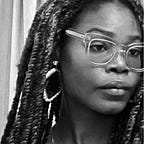Africa Young Feminist Plus Fund —Reflections
I am attending a convening by the Ford Foundation in Tanzania this week to discuss the findings of its research on young feminist organizing in Africa. Meeting feminists from all over the continent and learning about the issues they are addressing in their countries and the peculiar methods applied to their context in doing so has been a valuable communal experience.
Here are three things I am thinking about in light of my time here and most recent insights:
Patriarchy as a consciousness
As a result of how it deals with our personal and public lives, many feminists approach patriarchy as an external entity, a system, and an institutionalized mechanism. If we take a deeper look at the framework with which we interact with the world and the lens through which we see and set expectations for ourselves and assess our worth, we may realize that the patriarchy influences our conscious and subconscious decision-making and how we show up in the world.
Patriarchy influences our conscious and subconscious decision-making and how we show up in the world.
The politics of rest
Two medical terms — “drapetomania” and “dysaesthesia aethiopica” — were coined by Samuel A. Cartwright 168 years ago. These conditions refer to the “resistance of black people to slavery” and the “abnormal and persistent laziness of Ethiopians/Africans,” respectively. Cartwright’s paper about these diseases was widely distributed in the South in 1851.
Rest is humane, but for black people, it is also political (sadly), as a result of our historical resistance to exploitation and oppression being pathologized and demonized, which has resulted in internalized guilt and shame. Due to the intersecting forms of dominance we experience as a result of racism, patriarchy, and capitalism, rest is more political for black women.
Rest is humane, but for black people, it is also political.
Intentionality
Concern over the use of words like patriarchy, racism, colonialism, imperialism, neoliberalism, and intersectionality has grown. I invite you to reflect on the meanings of these terms and how their application impacts the lives of marginalized people in order to avoid dismissing them as being too ambiguous.
In the civic space, concepts like inclusivity, diversity, feminist leadership, and intersectionality are quickly becoming buzzwords and essential components of resource mobilization checklists. I urge everyone to always keep in mind the circumstances and events that necessitate these concepts and to be intentional about fulfilling their meanings.
